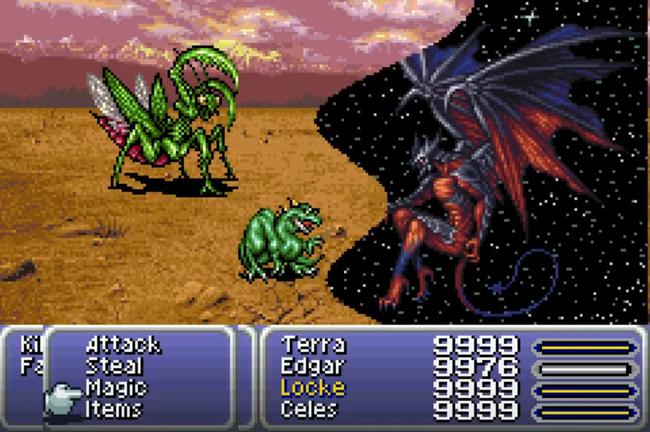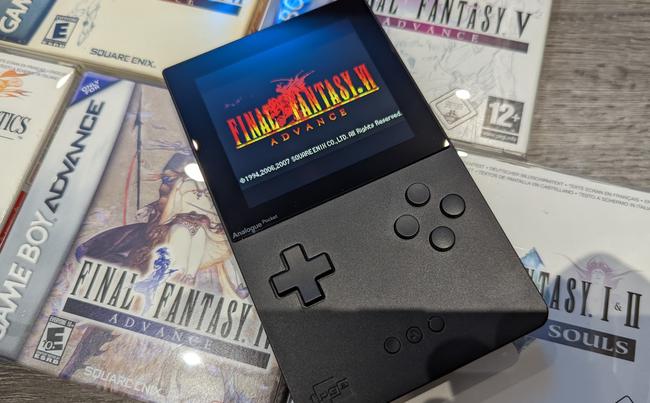The Pixel Remasters are nice, but for 16-bit Final Fantasy, GBA is still definitive
While the Final Fantasy VI Pixel Remaster isn’t quite out yet, I’m calling it: assuming you can get the right hardware setup, the absolute best way to play classic 2D Final Fantasy, except for the third, remains the Game Boy Advance.
I’ve been mulling this one over for a few weeks now - thinking about the content available across the different versions of these games - and I’m increasingly convinced that the early 2000s ports on the GBA will remain the definitive versions for the foreseeable future - even if they’re not necessarily that easy to play.
I’ve come to this conclusion for a few reasons. First of all, there’s the sprite work. The Pixel Remasters switch things up in an interesting way, with original pixel artist Kazuko Shibuya returning to deliver new versions of the sprites across all six games. These new versions appear to work to approximate how the original sprites would’ve looked with the inherent blurriness of the CRT displays of the time, while also modernizing characters from the first few games.
I honestly like the new sprite work, and I think FF1 and FF2 look the best they ever have - but I also very much recognize that it’s a matter of taste. Many will prefer to have sprite art closer to the originals, especially for the 16-bit era Final Fantasy titles - and for that, the GBA is your best bet.

The real reason, however, is the missing content. We were among the first to notice this and cover it back in July of last year, before the first Pixel Remasters even released. Over the years, each of the 2D Final Fantasy games received various updates and additions as it was ported from platform to platform. These changes and additions often improved the game - but the Pixel Remasters reset them, giving us new versions of the originals, with all later content excised.
In one particular instance this change was welcome, as one of the most original aspects of the first Final Fantasy, its unique magic system, was swapped for the system in later games. It’s great to see that first attempt at magic in the series preserved and re-released. Beyond that, though? It’s disappointing.
A lot of the FF Pixel Remaster missing content is stuff that doesn’t impact the game’s main story. Instead, it’s generally late-game and post-game optional content - much of it crossover-focused. It means missing out on new ultimate weapons, new dungeons, bonus bosses, and game-specific additions like party member switching in late-game FF4, new jobs in FF5, and extra espers in FF6.
As somebody who enjoys these classic Final Fantasy titles for their mechanics as well as their story, the loss of these additions is a particular bummer, since much of this content provided the game’s greatest challenges. It was also cool, I admit, to obtain FF8 GF Summon Diablos as an FF6 Esper, or do battle with enemies from later games in FF1.
These losses really suck, and things like gorgeous and impressive remastered soundtracks just don’t make up for it, at least for me - as the original music is good enough as-is. Pixel Remaster’s retranslation is a boon compared to the SNES and PS1 versions - but the GBA also had a solid, more accurate localization that is largely similar. The reasons to choose the Pixel Remaster, for me, keep shrinking.

The question naturally becomes how to play these versions of the game. As it happens, the Pixel Remasters launched in a similar time-frame to one of the best options going - the Analogue Pocket.
A high-end modern Game Boy, the Pocket plays Game Boy, Game Boy Color, and Game Boy Advance games using a FPGA chip - which basically means the emulation is at the hardware level rather than the software level. This makes its performance hyper-accurate and generally indistinguishable from original hardware - except you’re playing on a lush, high-quality modern device with a crisp, beautiful screen. Suddenly, playing the FF Pixel Remasters on a laptop, my phone, or even a Switch OLED model (presuming it soon comes to those platforms) is a whole lot less attractive.
Next month, my Steam Deck ships, giving me access to Steam titles on the go. If the Pixel Remasters are compatible with that, perhaps they’ll help to shift my opinion. But for now, not even the promise of some key scenes being presented in an Octopath-style 2D-HD format is enough to make me want to give up my current GBA play-through of Final Fantasy VI and wait for the remaster. The GBA versions remain definitive - if you have the means to play them, anyway.